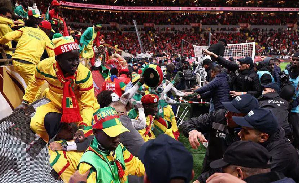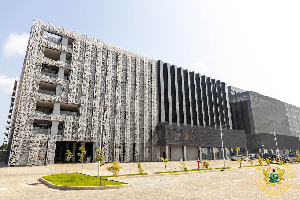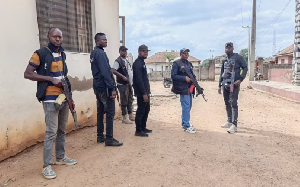There are strong indications that the presidential task force (three wise men) on government priority projects would have a tough time implementing their projects due to the current precarious nature of the economy.
The three wise men include Mr. Alban S.K. Bagbin, a Member of Parliament (MP) and former Minister of Health, Mr. E.T. Mensah, an MP and former minister of Water Works and Housing and Mr. Cletus Avoka, an MP and former Majority Leader in Parliament.
They are supposed to co-ordinate the realization of priority objectives in the areas of education, healthcare and transport that President John Dramani Mahama promised Ghanaians in the run-up to the December 7, 2012 elections.
However, there are serious concerns that the projects, which include 200 community senior high schools (SHS) and a university in the Eastern Region, construction of a new international airport, the expansion of domestic airport and the construction of railways and roads, Regional hospitals, clinics and heal; the centers, could face massive implementation challenges due to the dire sate of the economy.
It will be recalled that, at his last press conference, Finance Minister Seth Tekper admitted that the economy was facing serious challenges to due short falls in revenues coupled with the ballooning budget deficit.
Addressing the media last Thursday, the minister noted that “although measures are being implemented to ensure the achievement of the deficit target for the year, there remain risks to the achievement of the fiscal deficit target for the year. These include; the huge shortfalls in revenue resulting from the slowdown in economic activity and recent global development as well as higher spending on the wages due to the implementation in-target cost.”
The World Bank has also painted a gloomy picture saying that the economy was being pummeled by huge budget deficit as a result of overspending during last year’s election making it the fourth country in Africa with a huge public debt.
With this starting admission by the Finance Minister and confirmation by the World Bank, there are fears that the presidential priority projects may not see the light of day just many campaign promises made by previous government unless government exhibit a high sense of commitment and aggressiveness in maximizing revenues.
Donor funding has reduced in recent times due to Ghana’s new status as Middle Income Country. Many of the country’s donor partners believe the country was now self-sustaining and has thus reduce the amount of aid and support they give it and this has stalled many projects including the withholding of salaries of some government organizations.
When his reporter contacted Mr. E.T. Mensah, a member of the task force about the progress of the projects, he said the group was almost through with the final document that would set the ball rolling and that the group would soon make public when the projects would begin.
The task force among other issues was mandated to draw estimates and cost of various Senior High Schools, district and regional hospitals, polytechnics and tertiary educational institutions.
Currently, Ghana has been ranked as the fourth country in Africa which has the highest public debt in relation the total value of the economy. Ghana was ranked fourth after countries like: Cape Verde, the Gambia, and Sao Tome and Principe.
The Africa Pulse Report by the World Bank tracks the economic growth of various countries. According to figures from the Bank of Ghana, Ghana’s debt as at August this year stood at almost 44 billion Ghana.
This is about a half of the country which us valued 85 billion Ghana Cedis. Speaking to journalists in Accra from Washington, lead economist, for the bank says current situation can be attributed to as excessive spending during the elections last year.
The report is also worried that Ghana’s earning from its traditional exports could be declining sharply. Ghana must also look at alternative sources to fund its budget, it recommended.
Politics of Monday, 21 October 2013
Source: The Independent













